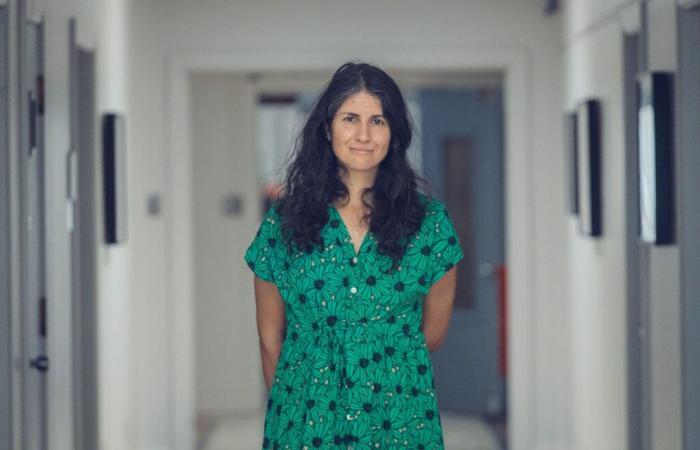What can we do when we face illness and suffering every day so as not to sink in or become completely desensitized? For psychiatrist and poet Ouanessa Younsi, writing is a way to find this balance.
“Literature is this space where I can be in contact with my own areas of fragility to also welcome those of others,” indicates in an interview the author who has five collections of poetry and two literary essays to her credit.
His last poetic essay, Take care, writewas published in November, as part of the magazine prize French studies, which “underlines an exceptional contribution to reflection on French-language literature and writing”. Among her predecessors, we find names like Marie-Claire Blais and Hélène Dorion.
His book was published about eight years after his previous essay, Cure, to likewhich was a finalist for the Canadian Governor General’s Literary Award. At the time, she saw herself as a doctor by day and a poet by night. Today, she notes that these two identities intertwine and nourish each other. It would always be “impossible for him to be a psychiatrist without being a poet”.
“These are two professions which have as their foundation the question of vulnerability and the question of language. In psychiatry, we have no choice but to listen to the patient, because we cannot simply image a brain and see if the person suffers from schizophrenia or bipolar illness. We must therefore take into account the patient’s story, the story of loved ones, the social and cultural story,” says the doctor who wrote “in the interstices”, between two patients and between two drinks to her son.
It is the links between these roles that Ouanessa Younsi explores in her latest opus, inspired by her daily life as a doctor without a smartphone or car. Death is a central theme. Suicides and fatal illnesses are an inevitable part of his life as a psychiatrist, just like “other forms of death, the mourning that inhabits us, the undigested losses”.
In this context, the poet “transforms death into words”. “I find, in this idea, perhaps not peace, but a calm,” she writes. “The dead need words to stay alive. »
Under his sensitive and colorful pen, patients who hear voices, who have visual hallucinations, who are immersed in dark thoughts or who lose their words due to cognitive disorders become immortal, even if they remain anonymous.
She believes that her two professions “raise the question of how we walk towards death”. “Poetry looks death in the face,” she notes in her book.
From caregiver to patient
The author explores her own flaws – hypochondria, phobias, desire for perfection, among others – and those of her colleagues. They thus exchange their position as caregivers for that of patients. “These roles are interchangeable. What makes me sit in my chair is a series of coincidences and inconveniences. I could always be on the other side,” she judges.
In her reflective stories peppered with literary and academic quotations, Ouanessa Younsi refers, among others, to the doctor and professor Rita Charon, mother of narrative medicine, for whom “listening to a patient and reading a story are similar skills.” “It’s a trend that I discovered more recently and which allowed me to put words to intuitions or ways of doing things that I had,” she reports to Duty.
She also addresses her discomfort with certain vocabulary used in her practice, such as referring to patients as “cases”. “When we look at language, we can clearly see that these words reduce a person’s subjectivity,” she explains. Maybe literature, for me, is a way of using words differently and seeing their symbolic charge that I don’t see on a daily basis in the hospital. »
Confidentiality requires, stories concerning patients are largely modified or even invented. “When I talk about myself, or about colleagues, it’s true. But I feel like we always talk about ourselves. Even when I describe something external, there is always a part of my look or my vision,” she emphasizes.
Eventually, Take care, write speaks of our common humanity, which we can admire if we listen, towards ourselves and towards others.






